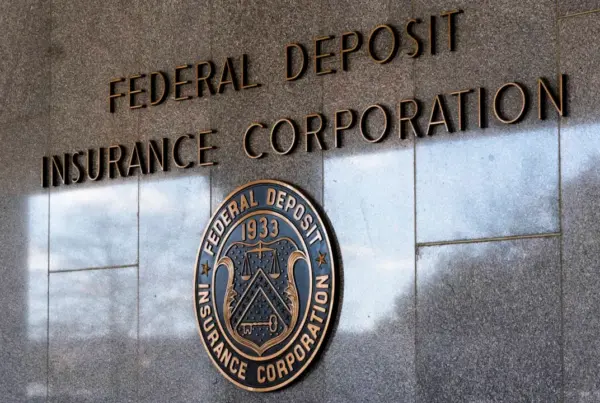FDIC’s Proposed Rule on Brokered Deposits: Essential Insights for Financial Institutions
Introduction
On August 23, 2024, the Federal Deposit Insurance Corporation (FDIC) announced a proposed rule aimed at revising its regulations governing brokered deposits. This significant regulatory action seeks to address the evolving landscape of deposit-taking activities, particularly in light of the increasing involvement of technology-driven financial services. The proposal is a critical step in enhancing the stability of the banking sector and mitigating risks associated with non-traditional deposit brokers.
Historically, the FDIC has regulated brokered deposits under Section 29 of the Federal Deposit Insurance Act (FDIA). The existing framework has faced criticism for its vagueness, leading to compliance difficulties for financial institutions and potential threats to the deposit insurance fund. The primary concern driving this regulatory update is the need to clarify the definition of “deposit broker” and to impose stricter oversight on deposit placement activities.
Key Regulatory Changes & Analysis
1. Expansion of the Definition of Deposit Broker
The proposed rule expands the definition of “deposit broker,” significantly broadening the scope of entities that may fall under this classification.
- Previous Definition: Limited to traditional brokers who directly place deposits with banks.
- New Definition: Includes a wider array of entities, such as fintech companies and online platforms that facilitate deposit placements.
2. Clarification of Exemptions
The FDIC aims to refine the exemptions available to certain entities under the brokered deposit framework.
- Current Exemptions: Specific institutions, including banks and credit unions, are exempt under certain conditions.
- Proposed Changes: The rule will clarify which entities qualify for these exemptions, potentially impacting how institutions engage in deposit activities.
3. Enhanced Reporting Requirements
The proposed amendments introduce new reporting obligations for entities classified as deposit brokers.
- New Requirements: Deposit brokers will be mandated to submit comprehensive reports to the FDIC detailing their deposit placement activities and associated risks.
- Impact on Compliance: Institutions will need to implement systems to ensure compliance with these enhanced reporting standards.
4. Increased Regulatory Oversight
The FDIC plans to establish a more rigorous supervisory framework for deposit brokers.
- Enhanced Scrutiny: The FDIC will intensify its examination and monitoring of deposit brokers to ensure compliance with the proposed regulations.
- Potential Consequences: Non-compliance may result in enforcement actions, including penalties and restrictions on deposit-taking activities.
Legal and Industry Implications
The proposed rule presents several compliance challenges and operational implications for affected financial institutions:
- Compliance Burdens: Institutions may face increased costs associated with aligning their operations to meet new reporting and compliance requirements.
- Legal Risks: The expanded definition and increased scrutiny may lead to potential legal challenges, particularly regarding the classification of certain entities as deposit brokers.
- Recent Trends: The financial services industry has seen a rise in enforcement actions related to deposit activities, highlighting the importance of robust compliance measures.
Recommended Actions & Compliance Strategies
Financial institutions and affected parties should consider the following steps to prepare for the proposed regulatory changes:
- Conduct Internal Reviews: Assess current deposit placement practices to identify potential classifications as deposit brokers.
- Update Compliance Programs: Revise compliance frameworks to incorporate new reporting requirements and operational adjustments.
- Monitor Deadlines: Stay informed about the timeline for final rule implementation and any public comment periods. The FDIC is expected to finalize the rule in the near future.
- Engage in Public Comment: Affected parties should participate in the public comment period to voice concerns or support regarding specific aspects of the proposed rule.
Conclusion & Next Steps
The FDIC’s proposed rule on brokered deposits represents a pivotal shift in regulatory oversight, aimed at enhancing the stability of the banking sector. Financial institutions must proactively address the implications of these changes, including potential compliance costs and operational adjustments.
The timeline for implementation remains uncertain, and stakeholders should remain vigilant for further regulatory developments. Given the contentious nature of these changes, potential legal or legislative challenges may arise, influencing the final form of the regulation and its enforcement. By taking proactive measures to address these regulatory updates, financial institutions can mitigate risks and ensure compliance with the evolving landscape of FDIC regulations.


